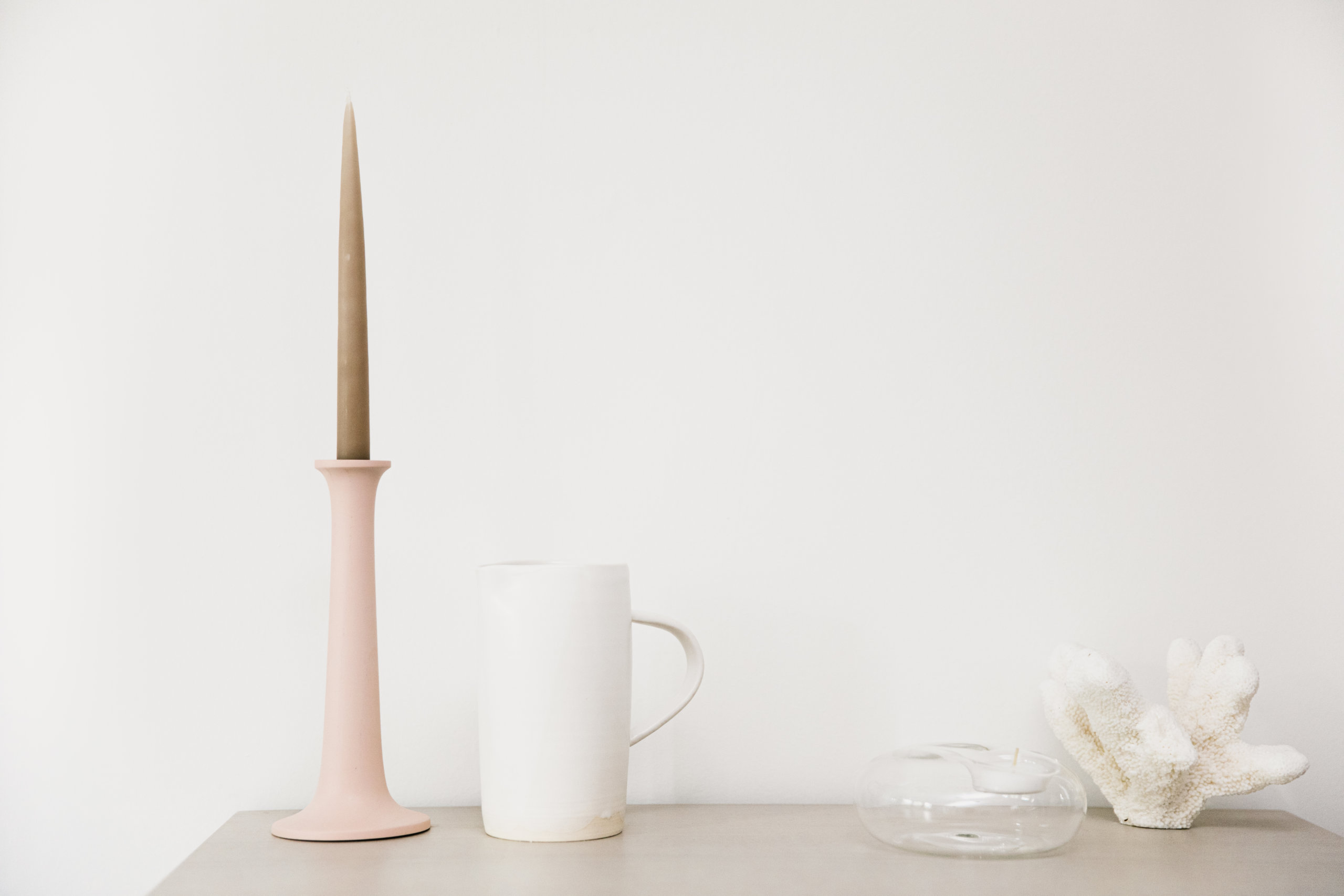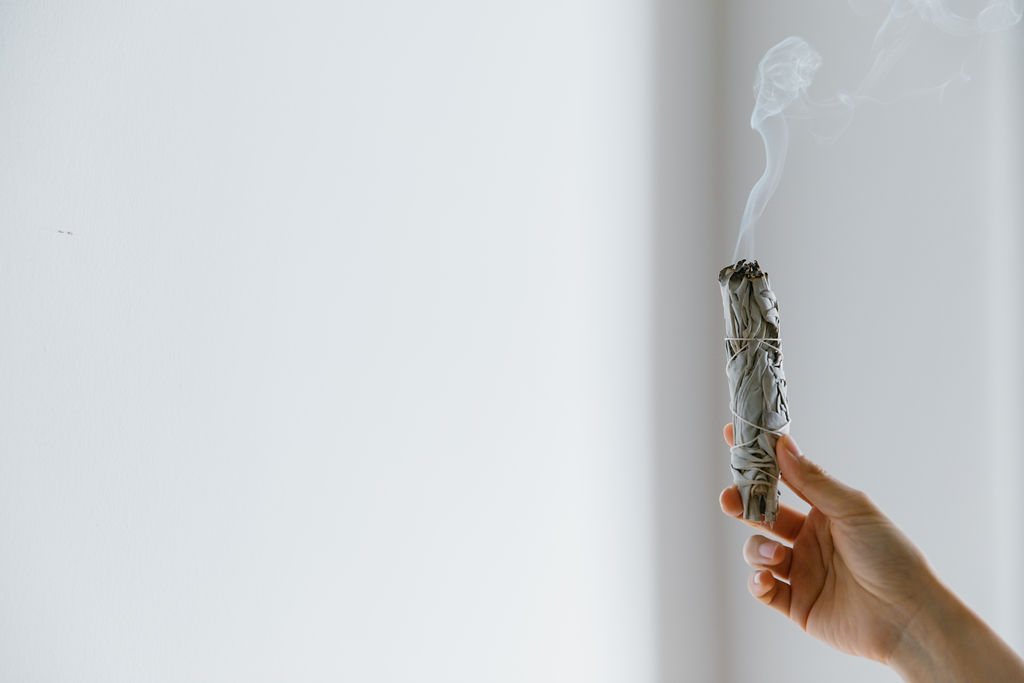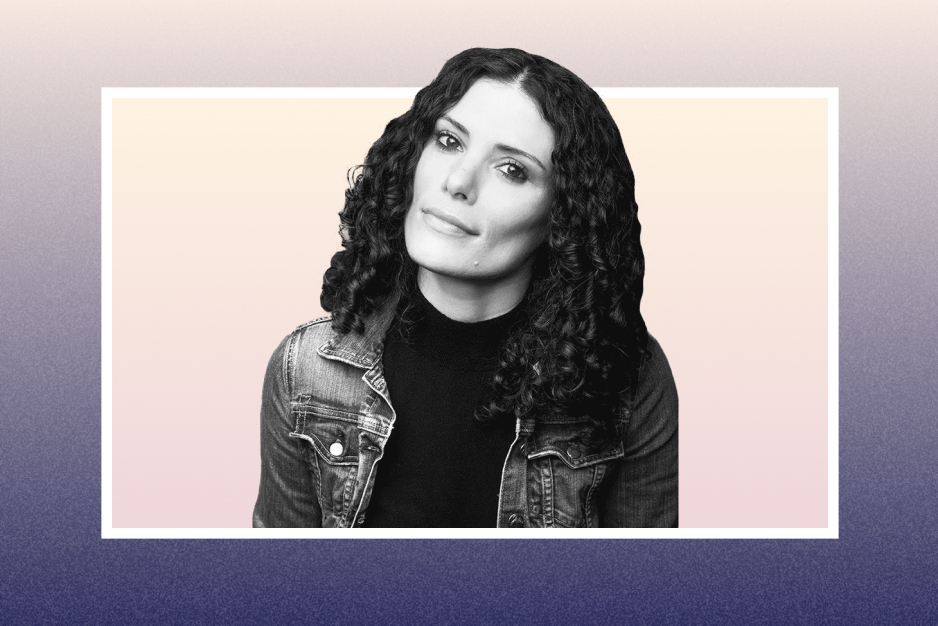Chani Nicholas is done with the frantic race. When we last interviewed the illustrious astrologer, founder of the CHANI app, podcast host and New York Times bestselling author, we were at the height of an “unprecedented” global pandemic. Nicholas was sheltering in place at home in Los Angeles with her wife, Sonya Passi. Nothing was certain — especially for Nicholas, for whom the stars reveal not surety but truth. So, she decided to slow down.
“What’s powerful about this moment is that we’ve all gone within. We’re not all having the same experience, but we are all in the same collective moment,” she told us in 2020. “Going within feels much bigger — and it’s amplified because we don’t know when this condition is going to lift.”
Three years later, Nicholas is still committed to slower living — and yet, she’s reaching more people than ever with her work. We reconnected with Nicholas to talk about what has shifted, evolved and changed — in the stars, in her work and for all of us. The resulting conversation covers everything from social activism to why Chani is glad if you’re hesitant about astrology. And, of course, we asked her to share her personal kurashi.
Let it inspire you to, as Chani puts it, “embrace a spacious connectivity.”
Editor’s note: Our last conversation took place on the full moon. Sunday, February 5, brings us another: the Snow Moon. In celebration of this parallel, Chani created a Full Moon playlist for KonMari readers. We recommend putting it on as you read her interview.
When we spoke to you last, we were in the height of quarantine, and you were sheltering in place with your wife in Los Angeles. What would you say is different about your life and perspective after riding the storm of a global pandemic?
When I think about life pre-pandemic, I often marvel at how fast life was zooming by. I would catch myself thinking, “I guess this is how life is when things are going well. I guess I am supposed to work this hard. I guess life just flies by.” But since the pandemic, I’ve come to realize that rushing is not the way I want to live my life. I feel like I’ve been able to say “no” to more things that aren’t essential and devote myself to what is.
During the pandemic, my wife Sonya Passi and I also built and released the CHANI app and then built an entire company and team to run it. It is a manifestation of my life’s work and made me value my time, energy and talent [more].

“I’ve come to realize that rushing is not the way I want to live my life.”
The New York Times has described you as “a socially conscious astrologer” — does that feel like an apt description?
I guess the term saddens me because it tells us just how pervasive individualism is. I feel like being “socially conscious” should be way less than the bare minimum for all of us.
My approach to astrology in both my book, You Were Born For This: Astrology for Radical Self-Acceptance, and on the CHANI app is centered on self-understanding and communal well-being. I’m interested in connecting folks with their life’s purpose through the framework of astrology. I hope that [we] provide folks with some of the tools they need to heal and unlock their gifts and potential.
We are social beings, interdependent on each other and the planet. If we aren’t conscious of that, we’re not only going to be miserable but doomed as a whole.
I love your use of the term “interdependent.” So much of The KonMari Method™ is about recognizing an intuitive connection with people but also objects — Marie believes the items we fill our homes and our lives with can directly affect how we feel, either by sparking joy or weighing us down. Do you see any overlap between your work and that physical relationship to things?
Yes, I do. Astrology relates to all things energetic, psychological, emotional, spiritual and physical. Each planet has lists and lists of material associations. Every week on the CHANI app, we give suggestions for an altar aligned with the most potent astrological mark of the moment. Usually, these consist of herbs, stones, foods and objects that (hopefully) you have around the house already. In my personal practice, I’ve built and maintained altars for most of my life. Our whole home really is an altar, and I feel the KonMari Method™ honors that.
“Our whole home really is an altar, and I feel the KonMari Method honors that.”
Marie’s latest book explores the notion of kurashi, or what roughly translates as one’s “ideal lifestyle.” You might also describe it as your why. The book reflects a shift in Marie’s philosophy over the last few years — specifically, her realization that, by using “Does this spark joy?” as a personal compass, you can improve not only your home but your whole life. It’s her definition of wellness, in a sense. How do you think astrology might play a role in discovering one’s kurashi?
Our birth chart tells us so much about what sparks joy in our lives. That’s one of the most liberating things about astrology: It tells us that we are who we are on purpose. No part of us is an accident. So often, I’ve experienced people’s relief at hearing what they already know about themselves. Sometimes, it takes a stranger reflecting back to us who we are to finally accept ourselves, to embrace that we are this, not that, or maybe some of this but more of that. Then, we can embrace our desires and needs and focus on what brings us joy.

“That’s one of the most liberating things about astrology: it tells us that we are who we are on purpose. No part of us is an accident.”
There’s so much emphasis on self-improvement these days and often to an unhealthy degree. How would you describe the balance between striving to improve who we are in the world — increasing our empathy and compassion, building self-awareness, pursuing more fulfilled lives — and accepting ourselves as we are?
To me, accepting who we are is life-long work. Hopefully, it is also a precursor to loving who we are — but that can feel like a very daunting and lofty goal at first. Accepting who we are is like being in a deep friendship with ourselves. Being a good parent to ourselves. Over time and with practice, our judgment can soften, and we can learn to observe ourselves with more tenderness and compassion. We can learn to witness ourselves — struggling, growing, shining — and appreciate whatever phase we are in.
Because capitalism turns self-improvement into a status symbol, it can become too focused on things and achievements instead of an inner state of being. That keeps folks isolated and in competition with each other when, in fact, the real wealth of life is how we connect. How we serve each other. How we care for the world around us. That says so much more about our wellness than our FitBits.
When we know that we are part of something bigger, we can’t help but heal. Connection fosters the sweetness and wisdom within so that it can come forth and be a blessing in our lives.
“Self-care” is also often a loaded term, for some of the same reasons you take issue with “self-improvement.” But pursuing your kurashi does require that we take care of ourselves. How would you define true self-care? How do you make space for that self-care in your life?
True self-care to me is always about fostering community and my relationship with myself. It’s when I am part of something that generates healing, interconnectivity and when possible, makes space for justice. Also, naps and a lot of rest and time to dream.
“If you are hesitant but curious about astrology, I am glad. I don’t think that anyone should trust any philosophy wholeheartedly without critically engaging with it. I believe any system that provides context for your struggles and life cycles is worth exploring. If that is astrology, great. If it’s something else, I hope you find it with speed and ease. ”
In our last interview, we asked you what your relationship to joy was, and you said, “My relationship with joy is one that has had to be – and continues to have to be – learned. I’m not somebody who naturally lives in a place that’s exuberantly joyful. “ How has your relationship with joy evolved since we spoke last?
This year, we closed the offices for an entire month, from mid-December to mid-January. This [interview] is the first work-related thing I have done in over three weeks. And it has been absolutely glorious. It brings me tremendous joy that our entire team has this time to rest and recover.
My joy is sparked every time I remember that we are self-funded and can therefore make these kinds of calls whenever we want, creating the work culture that we truly believe in and the kind of company that we can be proud of, that centers our team’s health as much as our customers.
For those of our readers who have never explored astrology, let alone their charts, where can they begin? What do you say to someone hesitant but curious about astrology?
If you are uncertain but curious about astrology, I am glad. I don’t think that anyone should trust any philosophy wholeheartedly without critically engaging with it. I believe any system that provides context for your struggles and life cycles is worth exploring. If that is astrology, great. If it’s something else, I hope you find it with speed and ease.
As for getting started, everyone can begin with their birth chart reading on the CHANI app. We built the app for both the novice and those in the know, so it is both accessible and deep. Every word in the app was written by astrologers. We also have the 2023 Guidebook, a jam-packed PDF book all about the big astrological moments of the year if you want to know what it all means. If you would rather listen, and you don’t have a subscription to the app, we have Year Ahead recordings for each sign.
My main aim is to be of service in the ways I can. I believe that we should all have access to the spaces, resources, traditions, and practices we find healing, restorative, and regenerative.
What’s next for you professionally?
When [my wife] Sonya and I worked on and released the CHANI app together, it deepened the relationship between Chani Nicholas, Inc. and Sonya’s nonprofit organization, FreeFrom, which has been deeply rewarding because of the eco-systems of care that it has fostered between the two organizations. We are continuing to explore that.
We are currently building the Android version of the app, which we are so excited for, and we’ve also just launched our first-ever physical CHANI products: an astro planner, an affirmation deck and planetary candles. They have been a joy to bring to life. We hope to continue bringing new products out this year.
“My kurashi is about feeling joyfully abundant — it’s relaxed enthusiasm, energizing calm, and spacious connectivity. ”
We have to ask: How would you describe your kurashi?
My kurashi is about feeling joyfully abundant — with things to do, people to meet, creative practices to engage in, solitude to enjoy, and family time to sink into. It’s exciting without being overwhelming. It’s relaxed enthusiasm, energizing calm, and spacious connectivity.








